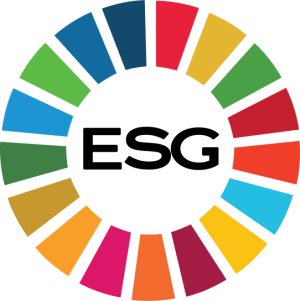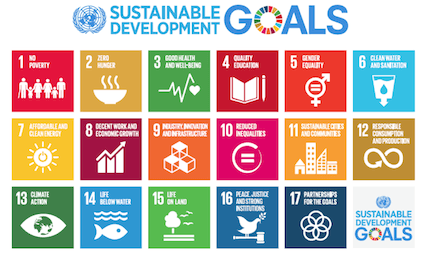
By Prof. Wayne DUNN
The real reason ESG and the SDGs matter is simple: they create value. When you integrate them, costs fall, revenue grows, risks shrink and competitiveness strengthens.
This isn’t theory; it’s playing out in finance, procurement and talent markets. Sustainability has moved from “good optics” to a bottom-line imperative.
Too often, organisations treat ESG and the SDGs as complicated—or separate. They’re neither. ESG is the how (governance, controls, measurable practice).

The SDGs are the why (a globally recognised roadmap for impact and development). Integrating the two—then linking them pragmatically to value and risk mitigation—creates clarity, simplicity and measurable business returns.
From compliance to competitive advantage
Compliance is often seen as a cost. In practice, regulatory compliance itself creates value when it is tied to strategy. Meeting sustainability disclosure requirements reduces financing costs, improves investor confidence and cuts legal and reputational exposure.
For Ghana, this is timely: with IFRS S1 and S2 becoming mandatory and the Bank of Ghana embedding ESG into supervision, firms that connect clear ESG practices to relevant SDG outcomes will be more investable and more resilient.
Think about it this way: a lender doesn’t reward a glossy report. It rewards credible governance, real risk management and a simple explanation of how those practices connect to SDG-linked outcomes like energy efficiency (SDG 7), decent work (SDG 8), gender inclusion (SDG 5) or climate resilience (SDG 13). When ESG (how) and SDGs (why) are integrated, the value proposition is obvious—and finance follows.
The business case for integration
Evidence consistently shows integrated performers outpace peers. In Ghana, the business case rests on five reinforcing pillars:
- Access to capital – Sustainable finance increasingly references SDG metrics. Firms that can show ESG discipline and SDG outcomes access larger capital pools at better rates.
- Operational efficiency – Linking efficiency projects to SDG targets (energy, water, waste) delivers 10–30 percent cost savings with short paybacks.
- Revenue growth – Products and services credibly tied to SDG outcomes grow faster and win premium market positions, locally and for export.
- Risk reduction – ESG-SDG integration strengthens governance, climate readiness, supply-chain continuity and regulatory compliance.
- Talent & reputation – Purpose, proven by integrated action (not slogans), attracts and retains high-performers, boosts innovation and earns stakeholder trust.
A Ghanaian example
Consider a Ghanaian agribusiness financier. By embedding ESG practices (board oversight, credit governance, climate scenario screens) and aligning products to SDGs like Zero Hunger (SDG 2) and Climate Action (SDG 13), it can:
- Attract concessional capital from development partners that prioritise SDG outcomes.
- Reduce defaults by using climate-informed lending models and agronomic data.
- Grow the addressable market through inclusive products for smallholders and SMEs.
That’s not “extra reporting.” It is risk reduction and revenue expansion wrapped together—compliance that monetises.
Keep it simple
ESG and SDGs don’t have to be complicated. Many firms over-engineer frameworks and produce reports nobody reads. Integration is a pragmatic, three-step loop:
- Start where you are: Map existing ESG practices against the SDGs you already touch (energy use, safety, inclusive hiring, local sourcing).
- Focus on what’s material: Prioritise the few issues that matter most to value, risk and stakeholders; ignore the noise.
- Act and communicate simply: Show, in plain language, how improvements connect to SDG priorities and business performance.
The narrative becomes: our ESG practices deliver SDG impact—and that impact drives business value.
ESG & SDG reporting: Focus on value
Reporting should be simple. Begin with the value you already create—lower energy use, safer workplaces, fair supply-chain practices, community investment—and link those to the most relevant SDGs.
Keep communications clear, authentic and tight to priorities; stakeholders prefer simple, honest stories over jargon-heavy documents. Done right, ESG-SDG reporting is less about paperwork and more about demonstrating measurable value, building trust and strengthening competitiveness.
Ghana’s window of opportunity
Ghana has a rare combination of ingredients: maturing governance frameworks, clear momentum toward IFRS S1 & S2, national commitment to the SDGs and a private sector that already delivers social value through everyday commercial activity. Early movers can lock in advantages that late adopters will find hard to match:
- Better financing terms via sustainability-linked lending and bonds tied to SDG metrics.
- Preferential procurement as customers and governments embed ESG-SDG criteria.
- Export readiness by meeting the sustainability expectations of global buyers.
- Reputational lift with investors, regulators, communities and talent markets.
Treating integration as a strategy, not a paperwork exercise, is how Ghanaian firms convert that window into durable competitive advantage.
A strategic choice
Integrating ESG and the SDGs is not philanthropy or PR. It is resilience, competitiveness and value—especially as IFRS S1 & S2 raise the bar. Companies that act strategically will access capital more cheaply, operate more efficiently and win customers and talent more consistently.
The playbook is straightforward: map ? integrate ? act ? communicate. Start with a quick ESG-SDG map of what you already do, pick the top three opportunities with financial upside or risk reduction, and move. Keep it simple, keep it credible and measure what matters.
Sustainability does not have to be complex—but ignoring it will be costly. For Ghanaian businesses, the choice is clear: embrace ESG-SDG integration as a competitive advantage or risk being left behind in markets where sustainability now defines value.
About the author:
Prof. Wayne Dunn is President & Founder of the CSR | ESG Training Institute and former Professor of Practice in CSR at McGill University. The institute’s ESG & Sustainable Finance Certified Masterclass takes place September 29–October 2, 2025 in Accra.
 Next Week in B&FT:
Next Week in B&FT:
“Carbon Credits and Green Finance: How Ghana Can Monetise Sustainability” — exploring how both businesses and governments can turn ESG and sustainability into direct revenue streams and preferential capital access, strengthening Ghana’s competitive edge in global markets.
The post Integrating ESG & the SDGs for impact and value: Create competitive advantage appeared first on The Business & Financial Times.
Read Full Story



















Facebook
Twitter
Pinterest
Instagram
Google+
YouTube
LinkedIn
RSS